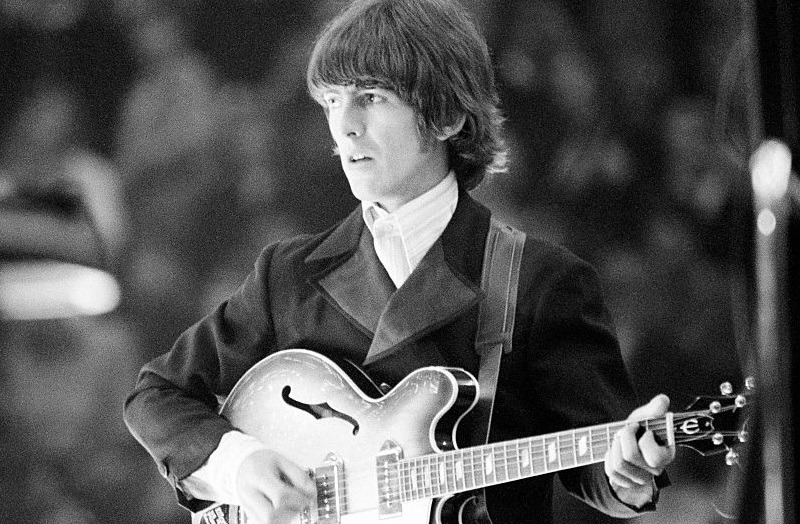When Paul McCartney shared that he was no longer working with the other members of The Beatles during a press conference in 1970, the group was unofficially done and had moved into their individual solo careers. That year, McCartney released his namesake debut solo album, McCartney. John Lennon released his debut John Lennon/Plastic Ono Band, while Ringo Starr also shared his first solo effort Sentimental Journey. By the end of 1970, George Harrison released his third solo album, All Things Must Pass.
From the album, Harrison released his first solo single “My Sweet Lord.”
On December 26, 1970, “My Sweet Lord” went to No. 1 on the Billboard Hot 100, making him the first member of The Beatles to top the charts as a solo artist, where he remained for four weeks.
“My Sweet Lord” was centered around the Eastern religion Harrison had started studying by the mid-’60s. In 1966, Harrison went to India and studied sitar with Pandit Ravi Shankar and met Maharishi Mahesh Yogi, which prompted him to take up meditation.
I really want to see you
Really want to be with you
Really want to see you, Lord
But it takes so long, my Lord
Within the lyrics, Harrison also incorporated the mantra of hare krishna.
Hm, my Lord (Hare Krishna)
My, my, my Lord (Hare Krishna)
Hm, my sweet Lord (Krishna Krishna)
Hm, hm (Hare Hare)
Really want to see you (Hare Rama)
Really want to be with you (hHare Rama)
Really want to see you, Lord
But it takes so long, my Lord
The Controversy
In 1976, Harrison was sued by Bright Tunes Music and found guilty of “subconscious plagiarism” since “My Sweet Lord” had some similarities to The Chiffons’ 1963 song “He’s So Fine,” and was ordered to pay $1.6 million.
The Resurgence
Just two months after Harrison died in 2001 at age 58, “My Sweet Lord” had a resurgence and reentered the Billboard‘s Hot 100 again, at the top, 31 years after it was first released.
Proceeds for the rerelease of “My Sweet Lord” in 2002 went to Harrison’s Material World Charitable Foundation and the Self Realization Fellowship.



